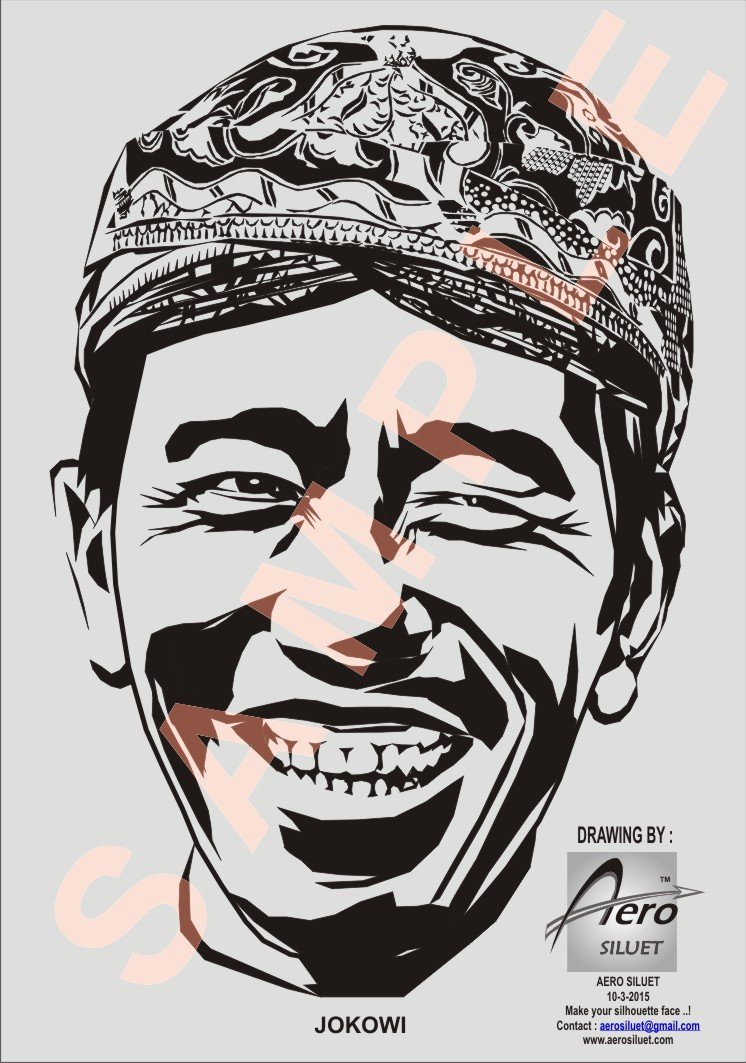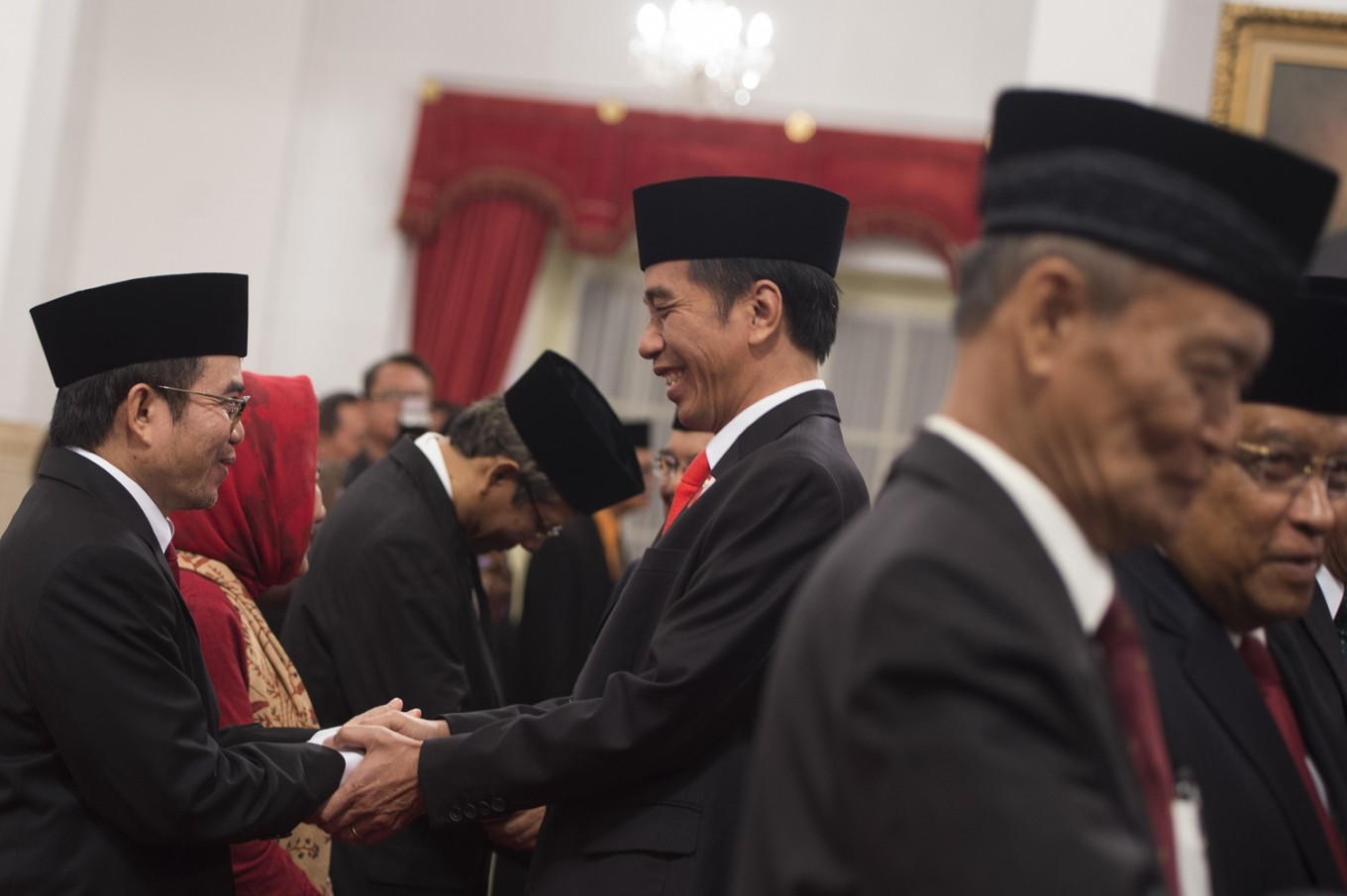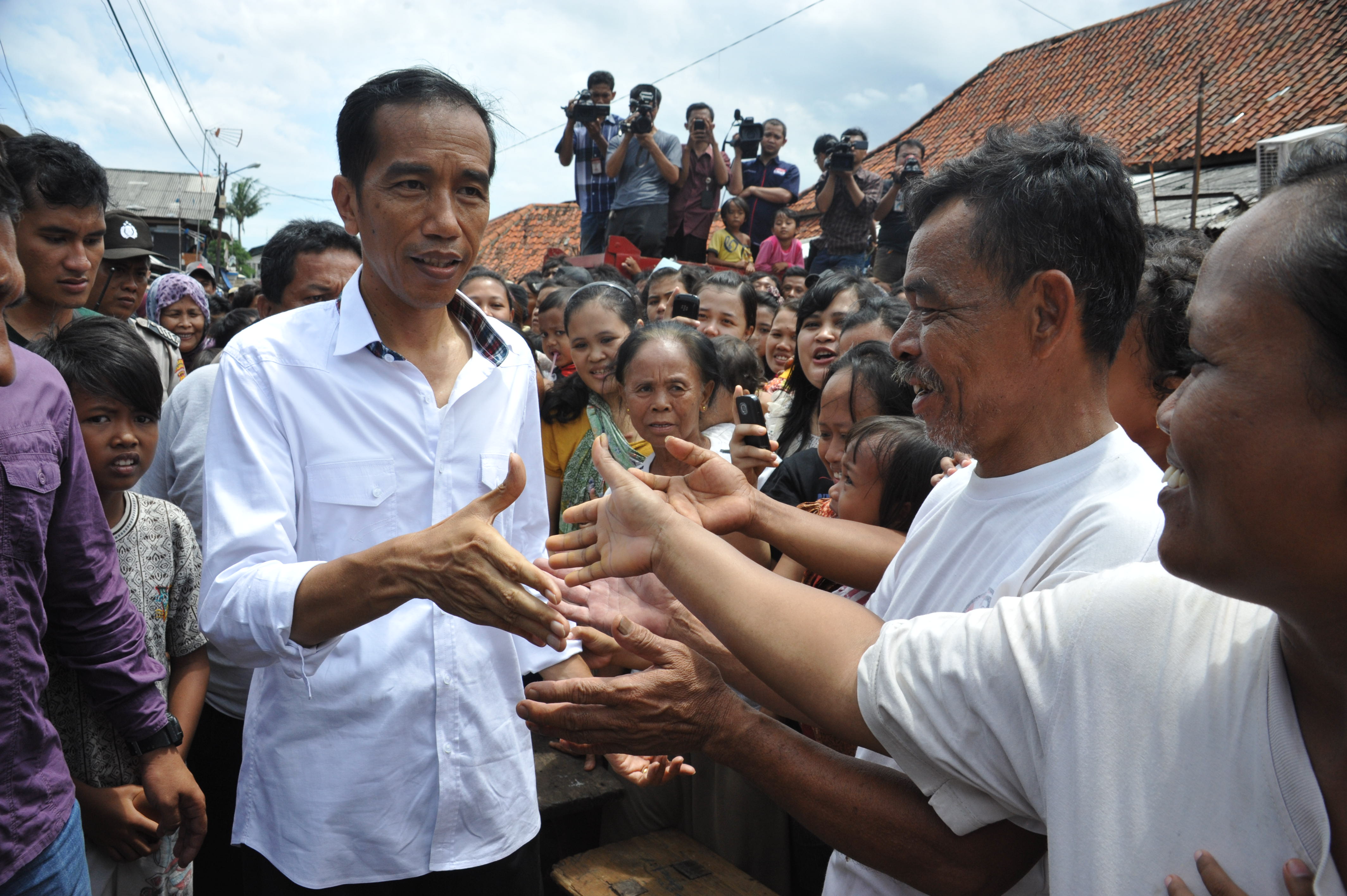JOKO WIDODO
EARLY LIFE OF JOKOWI
Joko Widodo, byname Jokowi, was born on June 21, 1961. He was born in Surakarta, Central Java, Indonesia. Joko Widodo is of Javanese descent. Before changing his name (changes of name are not unusual in Java), Jokowi's name was Mulyono. Jokowi is the eldest of four siblings and is the only son of Noto Miharjo (father) and Sujiatmi (mother). His father came from Karanganyar, while his grandparents came from a village in Boyolali. His education began in State Elementary School 111 Tirtoyoso, known for being a school for less wealthy citizens. At the age of twelve, he started working in his father's furniture workshop. The evictions he experienced three times in his childhood affected his way of thinking - and his leadership later on as the mayor of Surakarta (Solo) - as he organised housing in the city.
After primary school, he continued his studies in State Junior High School 1 Surakarta. He had wanted to continue his education in State Senior High School 1 Surakarta but failed the entrance exam and went to State Senior High School 6 Surakarta instead.

EVENT THAT CREATED BY JOKOWI
• Health care program
Early after taking office in late 2012, Jokowi introduced a universal health care program in Jakarta, based on a 'Healthy Jakarta Card' (Kartu Jakarta Sehat or KJS). The programme proved popular but there were implementation problems. The demand for health services from hospitals across Jakarta rose by 70% in the first few months. The program involved an insurance program provided through the state-owned insurance company PT Askes Indonesia (Persero) and a plan to regulate health charges for treatment for over 20,000 services and procedures. There was confusion over the details of the implementation of the system and long queues for services caused dissatisfaction. The long queues even generated a market for middlemen who offered line-waiting services for up to Rp 150,000 (around $US 15 at end-2013 exchange rates). The various problems led to criticism of Jokowi in the Jakarta regional parliament that he was promoting a populist, poorly-designed programme. However Jokowi defended the popular KJS programme and counseled patience.
• Public transportation
On 10 October 2013, Jokowi inaugurated the construction of the Jakarta MRT, which was previously delayed for years. Subsequently, on 16 October 2013, Jokowi also restarted the construction of the green line of the Jakarta Monorail, although finally the monorail project was disbanded in favour of the Jakarta LRT.
• Financial reforms
After Jokowi took office, taxes and the provincial budget of Jakarta increased significantly from Rp 41 trillion in 2012 to Rp 72 trillion in 2014.
• Transparency
Jokowi and his vice governor, Basuki, publicized their monthly salary and the provincial budget. They also initiated programs aimed towards transparency, such as online taxes, e-budgeting, e-purchasing, and a cash management system. Moreover, all meetings and activities that were attended by Jokowi and Basuki were recorded and uploaded on YouTube.
• Revamping street vendors and traditional markets
Jokowi regulated the chaotic agglomeration of street vendors in Pasar Minggu and Pasar Tanah Abang by relocating them to a new building, as these street vendors were causing horrendous traffic jams. He also built and renovated five traditional markets in 2013 and four traditional markets in 2014. The vendors in these markets are not charged for rent, although they are required to maintain their kiosks and not sell them. They are only asked to pay for maintenance, electricity, and water costs.
• Flood control
In 2013, Jokowi initiated dredging and reservoir normalization projects in order to reduce flood problems. Three of the most notable projects were the normalization of Pluit Reservoir, Ria Rio Reservoir, and Pesanggrahan River. These projects involved the relocation of settlements around the reservoirs, in which Jokowi used the 'lunch diplomacy' tactic to obtain agreement from the local populace. After the inhabitants of these settlements were moved to a new location, the dredging commenced and the project was praised by the Prime Minister of the Netherlands Mark Rutte as successful.These projects helped to reduce the extent of flooding in 2014.
• Infrastructure
Joko Widodo's administration has vowed to develop and upgrade Indonesia's infrastructure, with a focus on road and railway expansion, seaports and airports development, and irrigation. In 2016, the state budget allocated Rp 290 trillion (US$22 billion) for infrastructure, the biggest infrastructure allocation in Indonesian history.
There has been confusion and a start-stop approach on establishing a high-speed train between Jakarta and Bandung using either Japanese or Chinese sponsorship. In late September 2015, Indonesia awarded this multi-billion-dollar railway project to China to Japan's expressed disappointment.
Indonesia’s transportation ministry laid out a litany of shortcomings in plans for a $5.5 billion China-funded high-speed railway, casting doubt on the project and spotlighting Joko Widodo’s limits in turning mega-projects into reality as he tries to draw foreign investors to Southeast Asia’s largest economy.

Jokowi’s contribution on the world
• President Joko Widodo (Jokowi) highlighted Indonesia`s contribution to world peace while addressing members of the Association of Muslim University Students (HMI), here, Wednesday.
• Make Indonesia’s Manufacturing Sector Has Biggest Contribution in ASEAN
• 3 Years of Jokowi, Industry Minister: World's Fourth Highest Manufacturing Contribution
• Indonesia has an amazing maritime security.
• Obama appreciate him about his ability to make Indonesia’s stability better.
WHY HE IS VERY SPECIAL FOR ME?
Mr. Jokowi is a very special person for me. He has made a change for Indonesia. He’s very kind, humble, and simple person. He loves traditionality and doesn’t like a luxury. He’s very pleasure to visit his folk and listen to their aspiration. One of Jokowi’s favorite things to do is something called Blusukan. An Indonesian word that means a surprise visit. He dresses in regular cloths and appears at markets or businesses. Usually not embarrass people, but to find out what they really think, without them feeling like they are being watched.In fact he’s so well known for doing this that Mark Zuckerberg, the founder of Facebook, asked to go with him on a visit to Indonesia. They went to a traditional market called Tanaha Abang. Performing Blusukan has made Jokowi very popular with regular people. He has won multiple international acclaim and recognition for his leadership and effective policies as a Mayor, Governor and now President.


Komentar
Posting Komentar